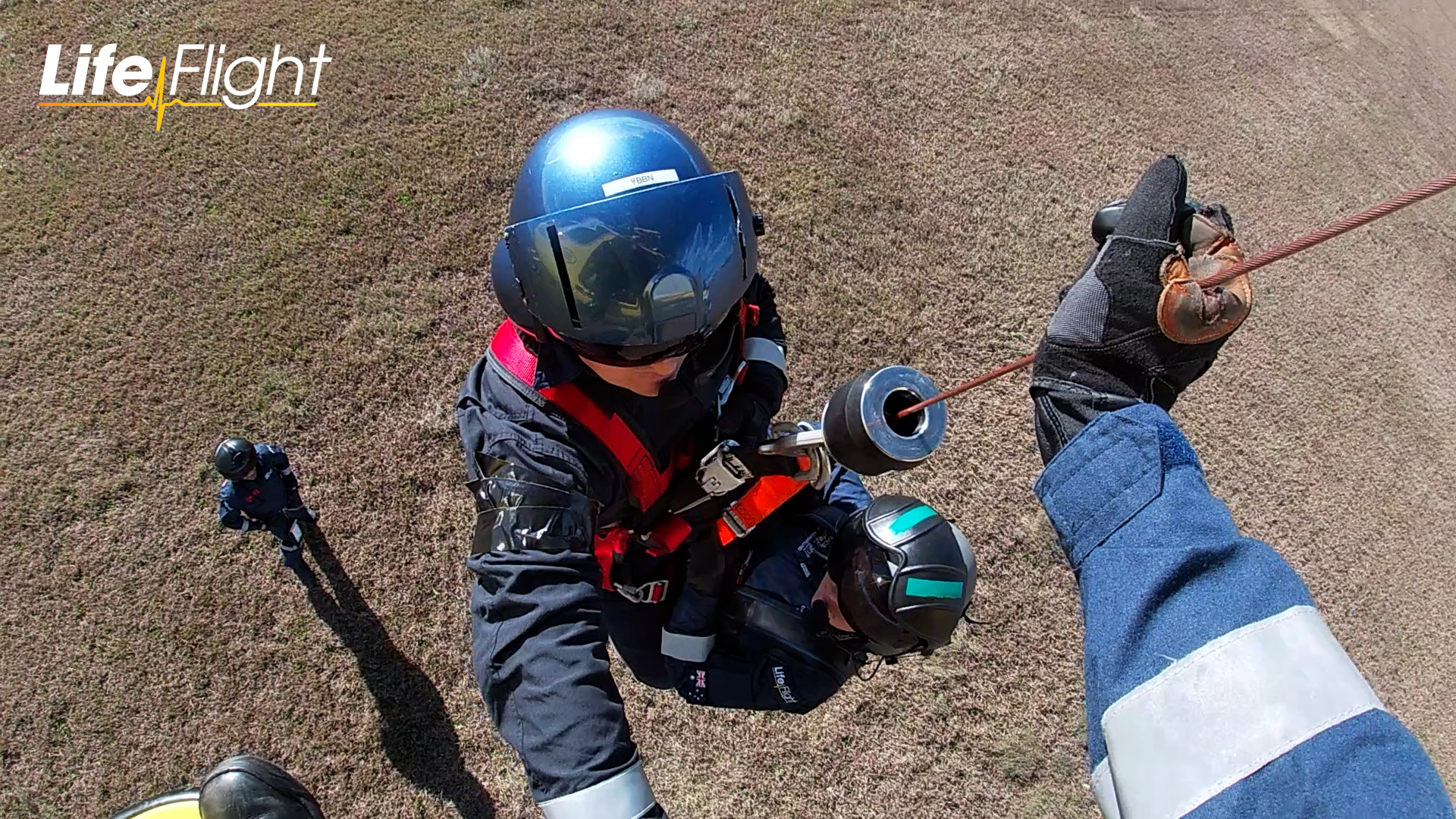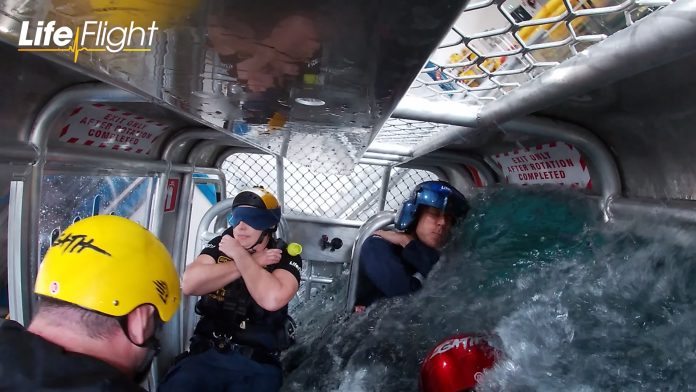Three new doctors have proved they have what it takes to practise medicine in the most extreme conditions.
Whether it’s dangling 250m above the sea, hanging off the edge of a mountain or responding to a car crash, the medics passed the test.
They join RACQ LifeFlight Rescue Critical Care team at the Sunshine Coast helicopter base.
The trio of new recruits is enthusiastic but one, Doctor Verity Marsh, is especially excited to fulfil her childhood dream of working in aeromedical retrieval.
The emergency registrar has a decorated background, having worked in hospitals in England, Melbourne and more recently on the Sunshine Coast.
“The best part about the job for me, is dealing with the acute patients, the critically ill patients, and seeing trauma patients,” she said.
“But also, who doesn’t want to fly around in a chopper all day, potentially being winched.”
Before their first day on board a rescue helicopter, the retrieval registrars underwent rigorous training at the LifeFlight Training Academy which includes helicopter winching and Helicopter Underwater Escape Training (HUET) (pictured above).
“During HUET, there are a number of sequences they undertake, including being inverted and blacked out or blindfolded, to simulate that they may not be able to see when conducting the egress,” said LifeFlight Training Academy instructor Shaun Gillott.
“We also conduct sequences where their exit may not work, and they have to go and use a secondary exit, whether it be a door or an emergency exit window.”
“It’s very important that we give the new doctors the opportunity to practice the skills that they would need if they are ever faced with the real situation,” he said.

The retrieval registrars are now also ready for any type of winch rescue they may come across in their day-to-day missions.
“Winch training becomes one of the biggest and most important skills the new doctors will learn,” said RACQ LifeFlight Rescue Chief Aircrew Officer Simon Gray.
“At the end of the day, they’re all doctors who can treat people whenever they come across them.
“This winch training is about how do we deliver those doctors to people who need them. We can put someone down 250 feet, through the trees, to someone who’s had a motorbike accident, or fallen off the side of a cliff. It’s one of the ways we deliver medical experts to where they need to be.”
Although not every call-out will be as high-pressure as a winch rescue, it’s important the new doctors are ready to respond to any type of medical emergency, from the first day on the job.
“The thing that is always difficult with a job like this is the variability. They could get a job like this, that is the worst thing we could create at Whyte Island, on their first shift, but you don’t necessarily do it every day,” said LifeFlight Director of Education Dr Andrew Donohue.
“So part of what we do is trying to give them a broad range of skills and then give them the chance at Whyte Island to get a little bit used to what the pressure and stress can be like on those really hectic jobs,” he said.





